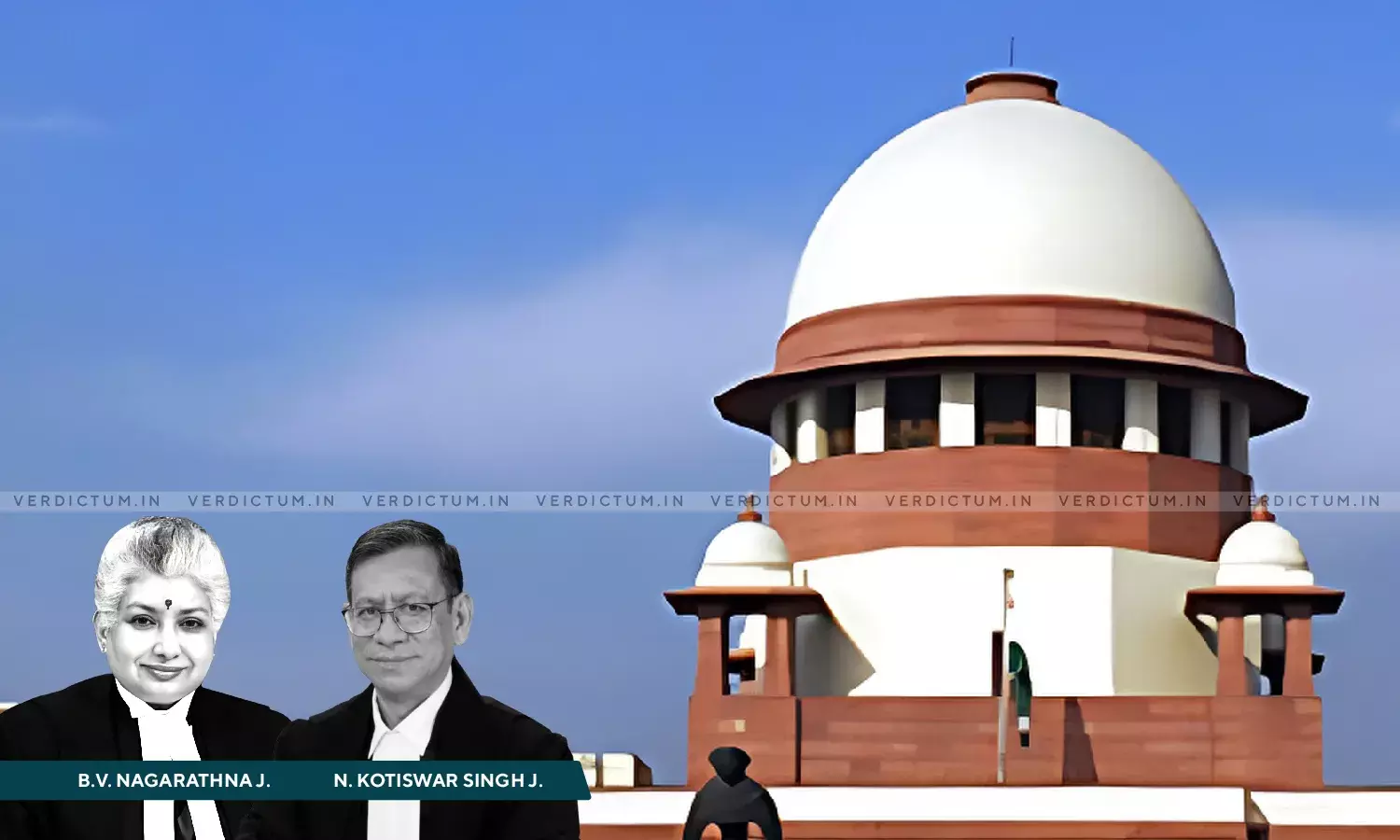Domestic Violence Act| Alteration, Modification Or Revocation Of Order Owing To A Change In Circumstances Could Only Be For A Period Ex Post Facto: SC
The Supreme Court has observed that any alteration, modification or revocation of an order passed under Section 12 of the DV Act owing to a change in circumstances can only be for a period post an order and not after the period prior thereto.
The Court clarified that Section 25(2) of the Protection of Women from Domestic Violence Act, 2005 (DV Act) cannot relate to any period prior to the order being passed under Section 12 of the DV Act.
A Bench of Justice B.V. Nagarathna and Justice Nongmeikapam Kotiswar Singh observed, “Any alteration, modification or revocation of an order passed under Section 12 of the Act owing to a change in circumstances could only be for a period ex post facto, i.e., post the period of an order being made in a petition under Section 12 of the Act and not to a period prior thereto. Thus, such an application for alteration, modification or revocation filed under sub-section (2) of Section 25 of the Act cannot relate to any period prior to the order being passed, inter alia, under Section 12 of the Act.”
Advocate Sruti Chaganti represented the appellant, while Advocate Harsha Tripathi appeared for the respondent.
The wife had earlier filed a petition under Section 12 of the DV Act which was allowed by a Magistrate's order. The order granted her maintenance and compensation. The husband did not present any evidence in those proceedings. The husband filed an appeal under Section 29 of the DV Act which was dismissed by the Appellate Court on the ground of delay and the orders attained finality.
The husband later filed an application under Section 25 of the DV Act, seeking revocation of the maintenance order. The husband argued that the wife had misrepresented that she was not employed. The application was dismissed, but the appellate court allowed the appeal and remanded the matter to the Magistrate.
The Supreme Court explained that an aggrieved person can seek for alteration, modification or revocation of an order made under the provisions of the DV Act if there was a change in the circumstances as per sub-section (2) of Section 25 of the DV Act.
“Section 25(2) of the Act contemplates an eventuality where an order passed under the Act can be altered, modified or revoked. Section 25(2) of the Act provides that the aggrieved person or the respondent, as defined under the Act, may approach the Magistrate by filing an application for alteration, modification or revocation of “any order” made under the Act,” the Court explained.
Thus, the Court stated that an order passed under the DV Act would remain in force till the time that order was either set aside in an appeal under Section 29 of the DV Act, or altered/modified/revoked in terms of Section 25(2) of the Act by the Magistrate.
“However, for the invocation of Section 25(2) of the Act, there must be a change in the circumstances after the order being passed under the Act…Thus, an order for alteration, modification or revocation operates prospectively and not retrospectively,” the Court remarked.
The Bench explained that the husband could not have also sought the prayers because he did not participate in the proceedings before the Magistrate and secondly, because he belatedly filed an appeal before the Appellate Court which was dismissed and thirdly, when that appeal was dismissed on the ground of delay, he did not choose to assail the said order before a higher forum.
Consequently, the Court stated, “However, liberty is reserved to the respondent herein to file a fresh application under Section 25 of the Act, if so advised.”
Accordingly, the Supreme Court allowed the appeal.
Cause Title: S v. M (Neutral Citation: 2024 INSC 732)
Appearance:
Appellant: Advocates Sruti Chaganti and Shekhar Badiger; AOR N. Sai Vinod
Respondent: Advocate Harsha Tripathi; AOR Balaji Srinivasan












